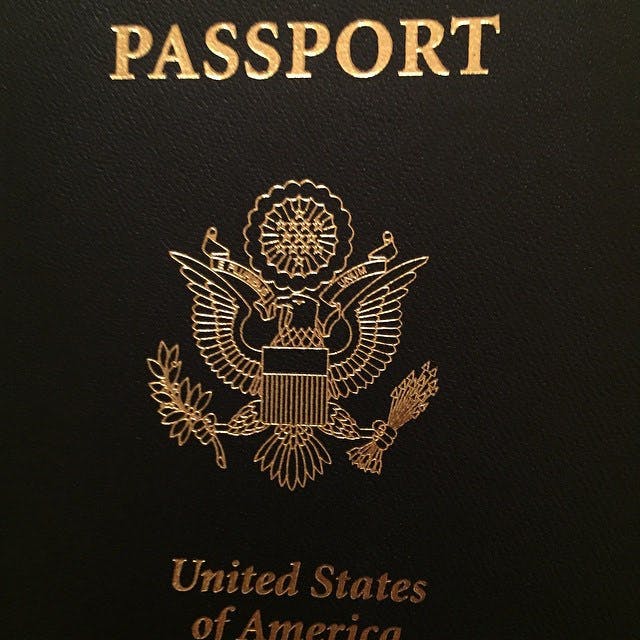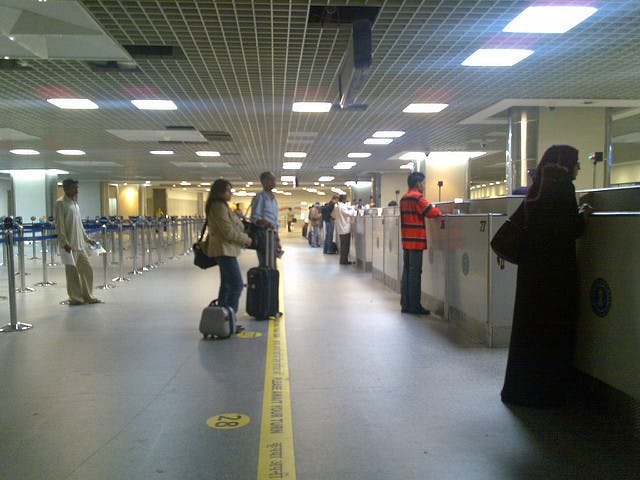President-elect Donald Trump promised to “immediately” deport millions of undocumented immigrants with criminal records when he takes office. But some countries may not take them back.
“What we are going to do is get the people that are criminal and have criminal records, gang members, drug dealers, where a lot of these people, probably 2 million, it could be even 3 million, we are getting them out of our country, or we are going to incarcerate,” Trump said in an interview on Nov. 13 with “60 Minutes.”
Currently, there are 23 countries that the State Department and the Department of Homeland Security label “uncooperative,” which means there are serious delays in producing the travel documents the U.S. needs to send the immigrants back, the Washington Post‘s Carol Morello reports.
Here are the 23 countries the U.S. reportedly lists as “uncooperative” with deportations:
- Afghanistan
- Algeria
- Burundi
- Cape Verde
- China
- Cuba
- Eritrea
- Gambia
- Ghana
- Guinea
- India
- Iran
- Iraq
- Ivory Coast
- Liberia
- Libya
- Mali
- Morocco
- Mauritania
- Sierra Leone
- Somalia
- South Sudan
- Zimbabwe
The Migration Policy Institute’s Michelle Mittelstadt told ATTN: that Trump’s estimated numbers of undocumented immigrants with criminal records may not add up. In 2012, Mittelstadt said there were 1.9 million deportable criminal immigrants in the U.S, based on estimates from the Department of Homeland Security, and more than half of those people were legal permanent residents or other legally present foreigners who were convicted of a crime. About 820,000 of the deportable immigrants in the U.S were unauthorized immigrants with a criminal conviction on their record, according to Mittelstadt.
“They are all removable as a result of having being convicted of a crime, that makes them removable, but they are not all unauthorized immigrants,” she said.
Thomas Homan, the executive associate director of enforcement and removal operations at U.S. Immigration and Customs Enforcement, gave written testimony in May to the Senate Committee on the Judiciary’s subcommittee on immigration. “As a result of their lack of cooperation, ICE has experienced a significant hindrance in our ability to removal aliens from these countries,” he wrote.
A 2001 U.S. Supreme Court decision in Zadvydas v. Davis found that the U.S. cannot keep undocumented immigrants who have served their sentence incarcerated indefinitely.
“Generally speaking, after 180 days, continued detention of aliens with final orders of removal is permitted only when removal is significantly likely in the reasonably foreseeable future, with very limited exceptions that are the subject of litigation,” he wrote. Essentially, if countries delay longer than 180 days or altogether refuse to send travel paperwork for the U.S. to deport criminal immigrants, U.S. officials may have to let them go, according to Homan’s testimony.
The state department could ban giving visas to countries who don’t cooperate or make other sanctions, but those countries could retaliate the same way.
“The range of options are similar to having a trade war, I suppose, but to keep out people from another country they’re going to make it hard on this country,” said Hiroshi Motomura, a law professor at the University of California, Los Angeles, about America’s options to force cooperation, to ATTN:. “You gain some short term political points but you’re running a real risk.”
Motomura explained that restrictions on foreign students after 9/11 started to have negative consequences for the U.S. “One example is there was a real heightened security to go to college in the U.S., but the state department quickly realized it was really hurting colleges and universities.” he said. “It has long term effects on this country’s standing in the world.”
Mexico and Central American countries, the focus of much of Trump’s campaign rhetoric, are not listed as “uncooperative.” Mexicans made up 52 percent of the overall undocumented immigrants in the U.S in 2014, the latest number available from Pew Research Center. However, only time will tell if Trump will put his mass deportation plan into action.
“I think there’s a lot of questions about campaign promises and what’s actually going to happen,” said Motomura. “It’s just not clear what is realistic, what’s going to happen, what Congress is going to pay for, and what other costs this country is willing to bear.”








